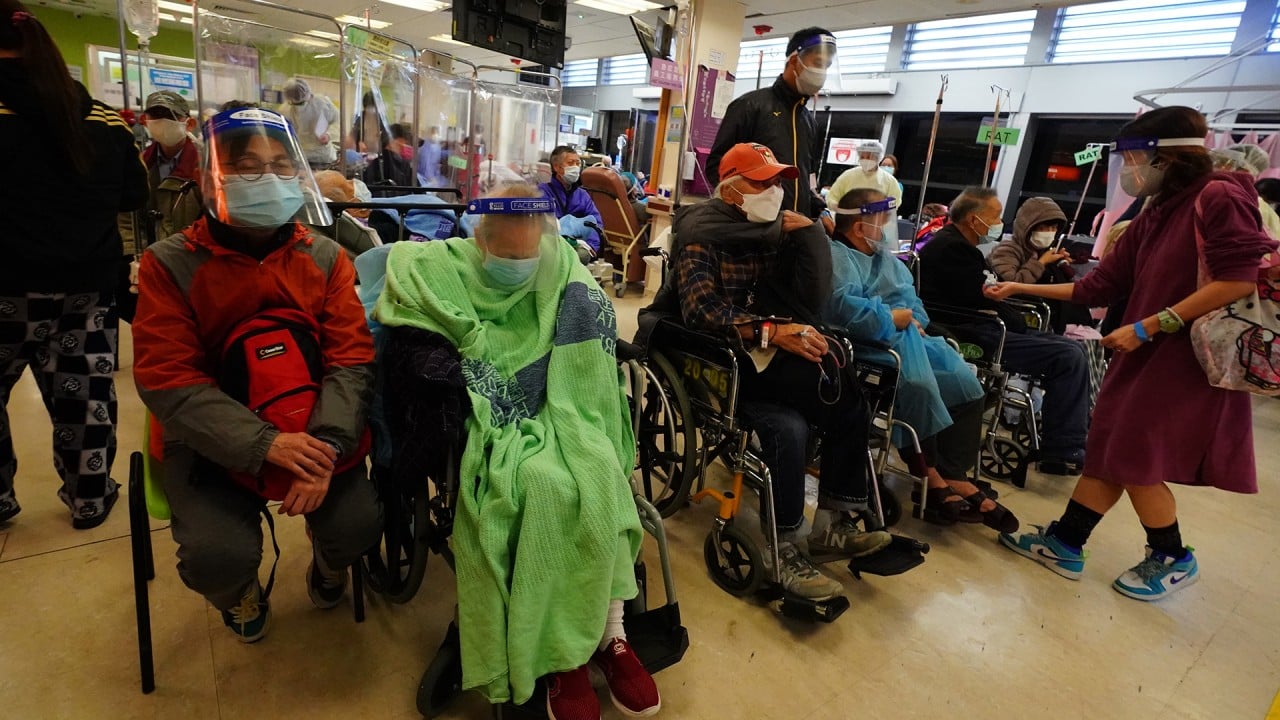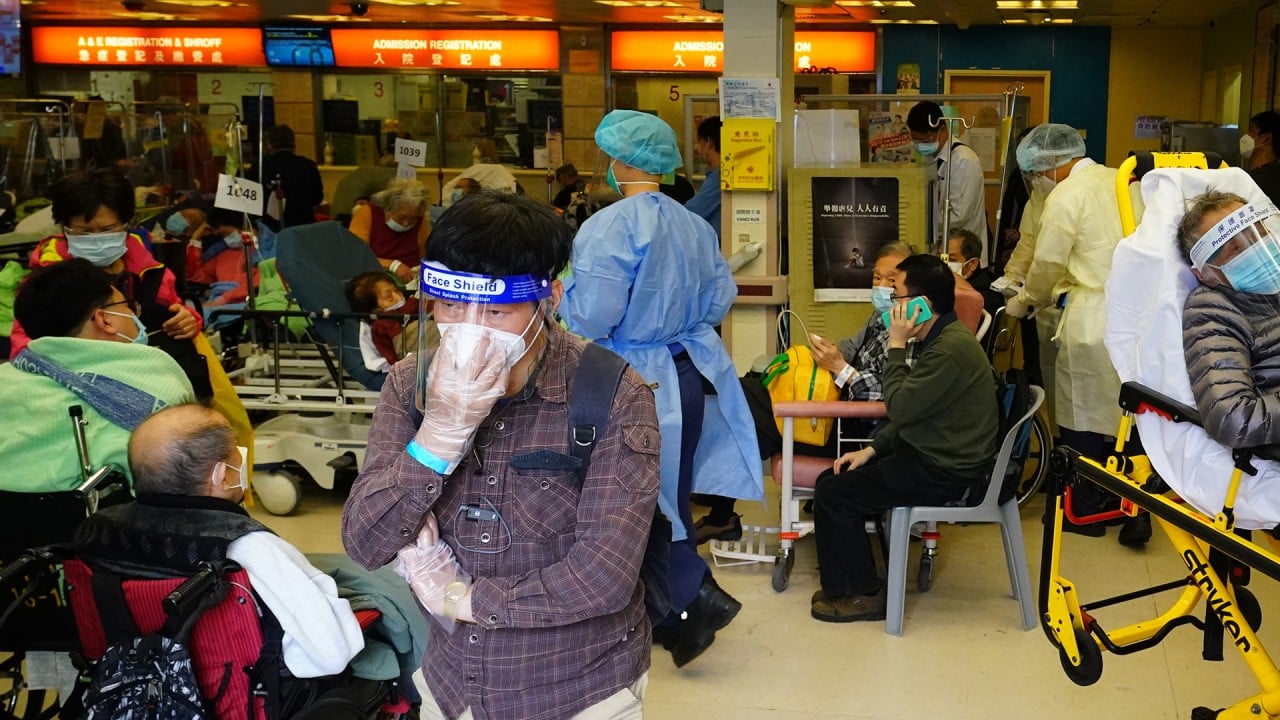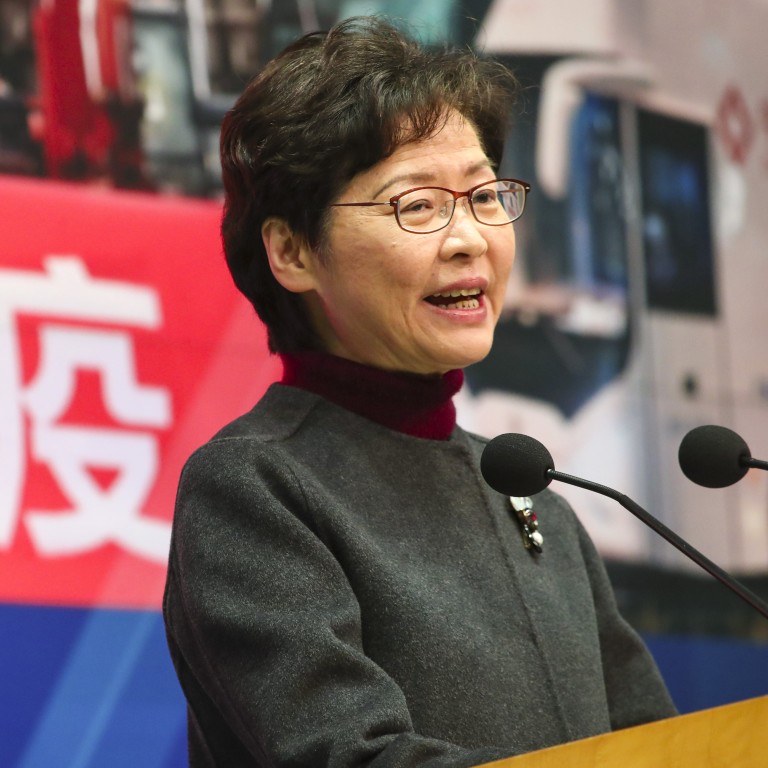
Coronavirus Hong Kong: Carrie Lam signals major shift in fifth wave fight, vows to reduce deaths and severe cases
- As government revamps its priorities, city leader says universal testing will be postponed but no new date given
- Lam offers breakdown of latest efforts, including greater help for residents in care homes, supply of more hospital beds for cases and arrival of antivirals
Hong Kong’s leader emphasised on Wednesday the focus of her government’s pandemic strategy was now on reducing deaths and severe cases, signalling a dramatic shift from universal testing which she said would now be postponed to a date to be fixed.
On Wednesday, Hong Kong confirmed more than 58,000 new coronavirus cases, including 32,766 residents who logged their infections through a new online portal after using rapid antigen tests. The city’s tally of cases stood at 586,017, while the Hospital Authority recorded 195 coronavirus-related deaths in the last 24 hours, taking the death toll to 2,869.
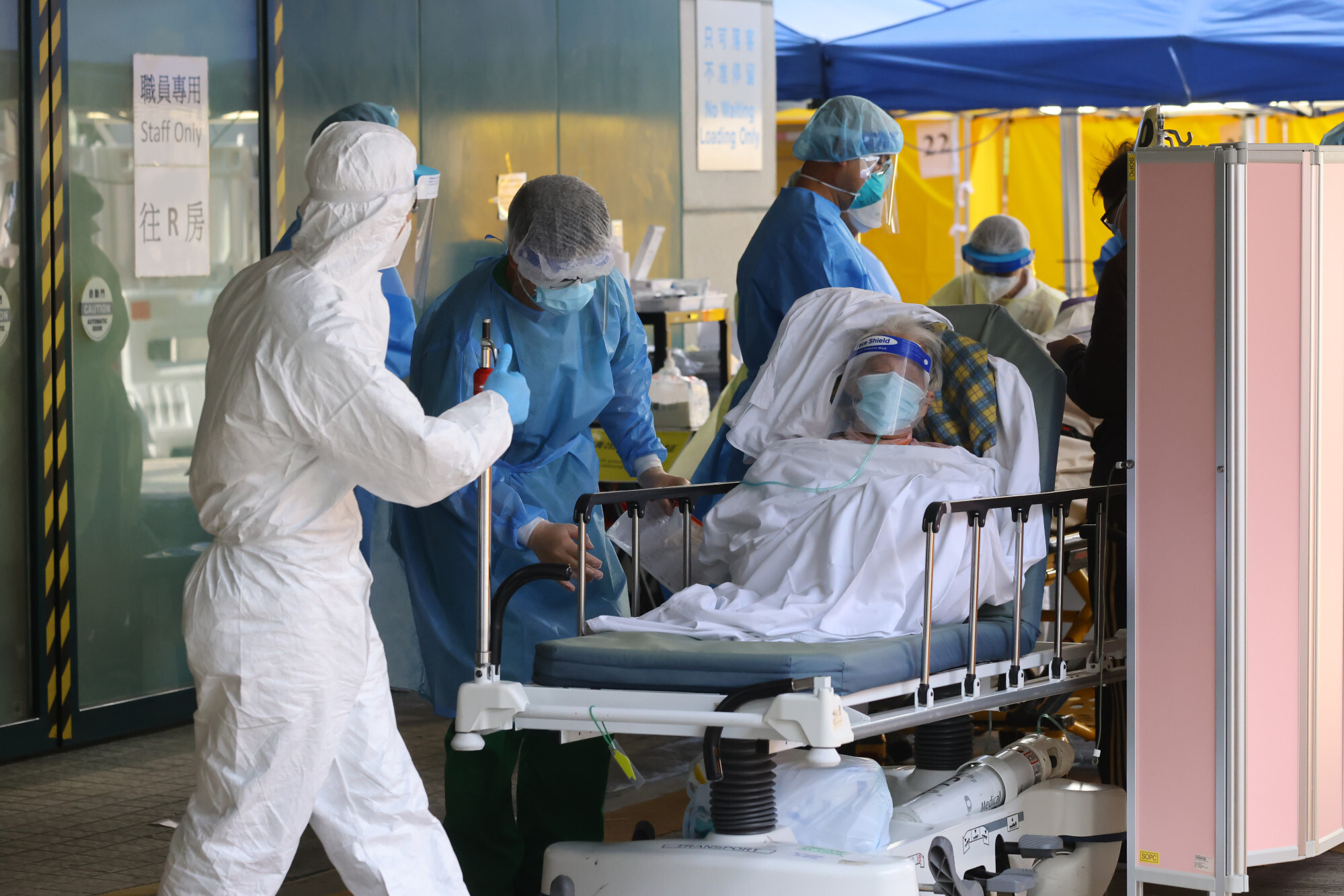
Just before 6pm, the government also sent out an unprecedented emergency alert via mobile phones in both English and Chinese informing residents about the conversion of Queen Elizabeth Hospital into a designated Covid-19 facility.
While Lam had previously revealed the mass screening would take place in March, at Wednesday’s press conference she refused to be pinned on a date. The exercise, which had triggered panic buying of groceries and medicines, would need considerable planning with a long lead time and “cannot be done overnight”.
“If it is not prepared with details and mobilised with all the resources, it is not possible,” she said.
“We will need to consider Hong Kong’s epidemic situation and whether we can achieve the best effect when starting this exercise,” Lam said. “We won’t do it for the sake of doing it, or do it to fulfil an order [from the chief executive]. It should be done to lead the city out of the pandemic.”
The shift was in line with advice from Dr Liang Wannian, the leader of the National Health Commission’s Covid Response Expert Team who is visiting the city to guide the pandemic response. He earlier identified “three reductions” in deaths, severe cases and infections.
Asked about Liang’s assessment of the city’s efforts, Lam said he acknowledged work had been done. But she conceded that he also identified “shortcomings”, and while her administration had attached great importance to pandemic control, the fifth wave was beyond the ability of local authorities to manage.
Large parts of the community had also been working together, with staff from government departments and experts contributing many ideas, she continued. The public was also obliged to contribute to the overall fight, she said.
The government’s communication strategy also has taken a new direction, as Lam announced she would host daily press conferences to “clear up rumours and misunderstandings”. She appeared before the media wearing a mask after going weeks without one as she wanted to allow residents to better “feel her emotions”.
Striking a more lighthearted tone, Lam said: “The earlier we win over this epidemic, the earlier we can cancel this [high-level] press conference. I believe the public will not want to see me all the time too. If you don’t see me, that means Hong Kong has already returned to its normal life.”
Carrie Lam confirms universal testing still on the cards, but more time needed
Lam’s shift in strategy follows several pointed statements from the central government. Han Zheng, the vice-premier overseeing Hong Kong affairs, told Hong Kong loyalists visiting Beijing for top political meetings that Lam’s administration must take up the “main responsibility” for the pandemic fight.
In another meeting on Wednesday, Xia Baolong, director of the cabinet-level Hong Kong and Macau Affairs Office, echoed the sentiment, adding to his earlier remarks local officials should “uphold their inaugural oath of office with concrete actions” to fight the pandemic.
Xia on Wednesday also reassured the delegates that the central government would ensure a steady supply of food and other necessities to Hong Kong, saying the mainland had sent more than 900 million yuan worth of supplies.
The latest stepped-up measures for elderly patients centred on creating more community isolation and temporary care centres.
On top of two converted from sport facilities in Kwun Tong and Shek Kip Mei already in use, about 1,200 beds will be made available at a converted site at Kai Tak Cruise Terminal, while seven more indoor sports centres will also be repurposed.
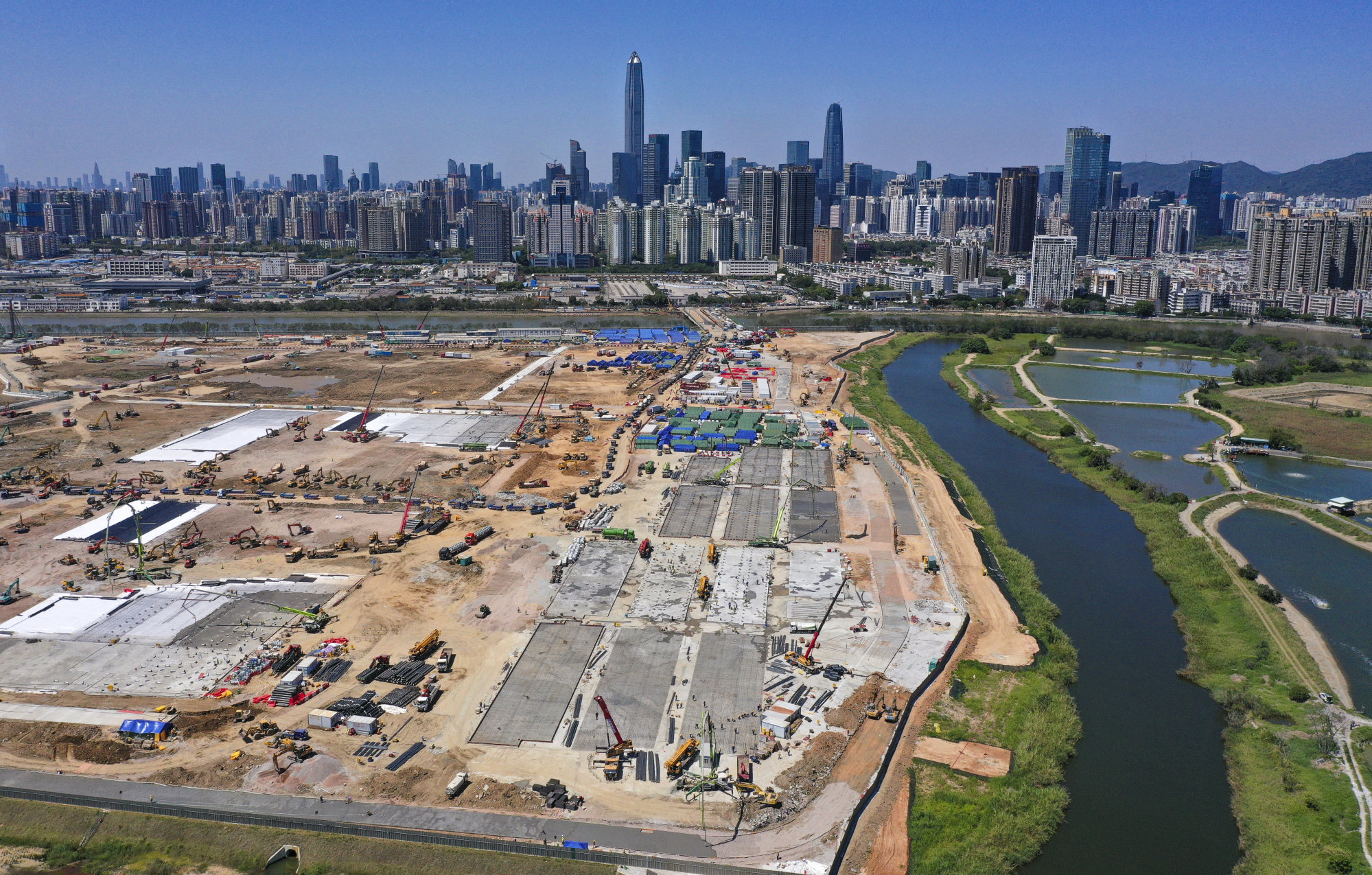
including two converted from sport facilities in Kwun Tong and Shek Kip Mei, and 1,200 beds from a converted site at Kai Tak Cruise Terminal, with seven more indoor sports centres going to be repurposed. Those sites will admit mainly patients with mild symptoms.
As part of its effort to increase care for elderly Covid-19 patients, the government is creating more community isolation and temporary care centres, with plans for two converted from sport facilities in Kwun Tong and Shek Kip Mei and arranging 1,200 at a converted site at the Kai Tak Cruise Terminal. Seven more indoor sports centres will also be repurposed, but they will admit mainly patients with mild symptoms.
Authorities also aim to inoculate all residents at nursing homes within two weeks and seniors who live alone. Closed-loop staffing arrangements will be implemented at nursing homes and hotel accommodation will be arranged for carers, along with designated transport, to avoid further outbreaks at the facilities.
Elderly patients with mild symptoms who are isolating at home will be given an anti-epidemic pack including rapid test kits, traditional Chinese medicine, a thermometer and a health care handbook without the need to register first.
What was Carrie Lam told about delaying Hong Kong poll in Shenzhen meeting?
Lam also noted that Queen Elizabeth Hospital would reserve its 1,500 beds solely for Covid-19 cases and transfer or discharge other patients. About 9,000, or half of the city’s hospital beds, would eventually be dedicated to infected residents, she said.
Mainland medical professionals will also be assigned to the North Lantau Infection Control Centre, which has 800 beds, and at the AsiaWorld-Expo makeshift treatment facility, she revealed, adding that a makeshift hospital at Lok Ma Chau Loop area built with help from over the border would aim to be operational by April.
Lam confirmed a shipment of the anti-Covid medication molnupiravir by American drug maker MSD had arrived, while Pfizer’s Paxlovid would follow next week, providing new antiviral options.
Asked whether the decision to close schools from March 7 until late April, ostensibly to allow for universal testing was fair to students if the exercise was now postponed, Lam insisted they were not being denied their education and she hoped face-to-face classes could resume after Easter.
She did not say whether there would be a new round of school closures once a new date for mass testing was decided.
The chief executive also addressed the role of private hospitals, which became a talking point after Han said they were shirking their responsibilities as “white-cladded angels” to save lives. Lam said her meeting with private operators on Tuesday evening was “constructive and useful”.
She said they did not commit to a number of beds for Covid-19 patients, citing manpower difficulties and a shortage of isolation facilities. But they would help run community isolation or temporary care facilities and promised not to turn away cases in need of outpatient services, while providing more telemedicine services, she said.
Lam also vowed that the fight against the coronavirus would continue.
“At this stage, it is pointless to argue whether we are adopting a ‘living with virus’ or ‘zero-Covid’ approach, but I can tell you with 100 per cent certainty that the Hong Kong government will never adopt the so-called ‘lying flat’ attitude suggested by others in society to deal with the pandemic,” she said. “That means we won’t do nothing to fight the pandemic.”
Henry Leung Hon-fai, president of the Hong Kong Doctors Union, said some private clinics did not accept patients with coronavirus symptoms, including fever, for fear of an outbreak, adding he knew of at least six private doctors and about 20 nurses who were diagnosed with Covid-19, forcing the businesses to close.
Some doctors also offered video consultations for telemedicine services and delivered medicines by courier, he added.
University of Hong Kong microbiologist Ho Pak-leung called for private hospitals to be more proactive in the city’s pandemic fight, including organising teams to vaccinate residents at care homes or arranging shots for patients who were in hospital but not inoculated.
Additional Reporting by Tony Cheung



